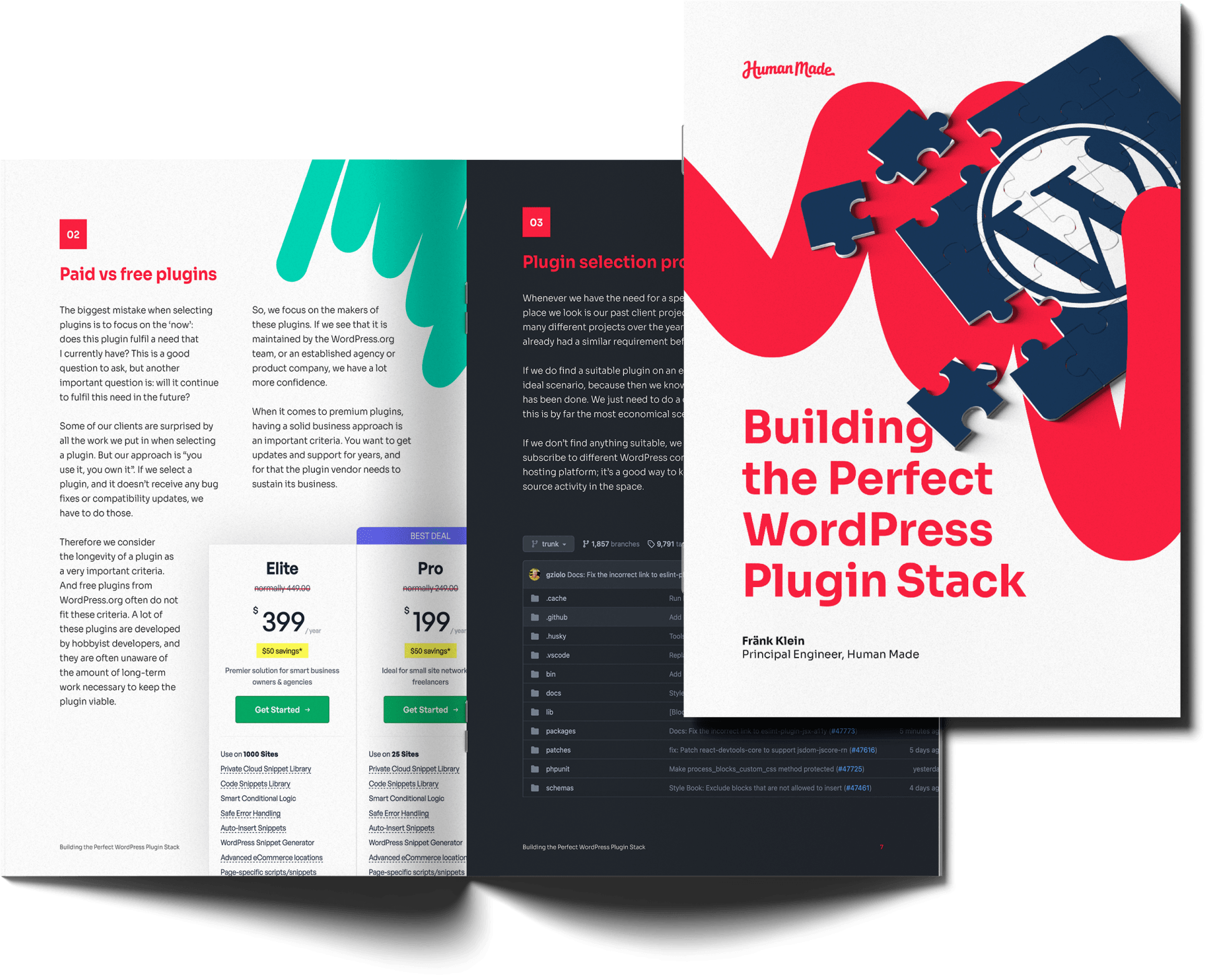
Our WordPress explorers found some real whoppers the last time they explored the world of WordPress myths, and yet they remained curious. But as they journeyed deeper into the underground of the web, nobody could have prepared them for what they found… 😱
Join our WordPress Mythbusters once again as we turn things upside-down and explore some ‘stranger myths’!
1. WordPress Does Not Scale
Scalability refers to the capability of your website to be able to continuously respond to a high number of requests or a sudden spike in traffic.
One of the most impressive features about WordPress is its scalability, making this an easy myth to bust. WordPress has been known to power everything from tiny blogs receiving only a handful of views a month, to large enterprise websites with many concurrent users.
An example of one of these large complex sites that Human Made helped to scale directly would be America’s largest fact-checking site, Snopes.
Snopes handles an average of 12 – 20 million visitors a month, with demands on the site occurring unpredictably and causing large peaks in traffic.
When you consider that this site is powered by the same platform that your friend uses to post pictures of their cat, this is quite astonishing!
Scaling at this level is typically done horizontally (by adding more servers) and/or vertically (adding more resources to the servers). So it goes without saying that unless your friend has invested in an enterprise hosting solution, we should not expect that their cat blog will scale to 12 to 20 million visitors per month without some work.
This is why Human Made have partnered with a hosting company that have built a technical stack geared towards managing complex, high traffic WordPress sites at scale.
2. WordPress is Not Suitable for E-Commerce
This myth is easy to debunk with this one image from Statista from their article Market share of leading e-commerce software platforms and technologies worldwide as of July 2022*
WooCommerce is a plugin that transforms any WordPress website into a powerful E-Commerce platform.
WooCommerce is an incredibly flexible solution with a huge ecosystem of plugins in its own right, meaning that you can sell and manage everything from physical goods and downloadable files, to software licences and membership subscriptions, all from the comfort of your website.
When you consider that WordPress powers 43.2% of the web (W3Tech – Usage statistics and market share of WordPress), it is no wonder that so many E-Commerce sites are built on the same platform they are already so comfortable with and opt for an online shop powered by WooCommerce.
Rest assured, if you have something to sell, you can sell it with WordPress and WooCommerce!
3. WordPress Does Not Support Multilingual Sites
If you configure WordPress to run a multisite instance you can have a multilingual website right ‘out of the box’.
A multisite network will allow you to create multiple instances of your website either using separate domains (or sub-domains), or in sub-folders. This setup allows you to configure each site to use a different language.
However if you want a full multilingual solution that supports content translation across your sites there are some fantastic multilingual plugins available for WordPress such as MultilingualPress. Taking advantage of WordPress multisite, this plugin will dynamically link content to the translations that are available in other languages (on the other sites within the network), and provides the tools for you to perform translations.
Human Made is able to implement multilingualism at scale; one such example of this is the Aleteia global Catholic network. Their site provides spiritual guidance and knowledge to an international audience of over a billion people. To support this global audience, we initially helped them to provide their content in six different languages.
As in the case of the Aleteia site, when you implement a multilingual site you may need to consider factors other than content translation. For example when you are working with text that supports non-latin characters and Right to Left (RTL) languages, such as Arabic, you will need to ensure that your theme can fully support these characters and languages.
4. WordPress Plugins are Poor Quality
We have already covered two amazing, high-quality WordPress plugins, but we will admit, the WordPress plugin landscape can be a complex and tricky place to navigate. There are stores dedicated to paid ‘premium’ plugins, thousands of free plugins, and there are custom built plugins that are very specific to one website.
When people complain about plugin quality, though, they are typically talking about the plugins that are found in the WordPress.org plugin repository.
When plugins are initially submitted to the repository they undergo an initial quality check. According to the developer submission guide: “It takes anywhere between 1 and 10 days. We attempt to review all plugins within 5 business days of submission, but the process takes as long as it takes, depending on the complexity of your plugin”.
However, it is worth noting that many of the plugins are created by volunteers within the Open Source community, and without the correct resources, some plugins can go unloved and can become out-of-date.
Some authors of free plugins will provide links to information about how you can support them. If you rely on one of their plugins and would like to see it continue to be supported, following these links is a great way to encourage that.
But unfortunately, some plugins do fall by the wayside. The WordPress plugin repository will provide warnings if a plugin has not been updated in a considerable amount of time, but there are other things you can look out for.
- When it was last updated
- The version of WordPress it was tested up to
- The PHP version it supports
- Ratings (the amount of stars it has)
- The amount of unanswered support tickets
When it comes to plugin quality another thing to be extremely careful of is ‘nulled’ plugins. These are typically pirated plugins (and not the cool, swashbuckling kind you might find in the movies), and have been found to contain less than favourable code that could compromise your site.
“Nulled WordPress themes and plugins are often riddled with malware and pose severe security risks to WordPress sites. When you install them on your site, you may be inviting hackers in. You risk damage to not only your site but your business and your reputation.” – Melinda – 5 Reasons Why You Should Not Use Nulled WordPress Themes and Plugins – BlogVault.net
Of course, if you don’t have the time to do it yourself we recommend partnering with an agency that will look after your plugin stack, keep it up-to-date and keep a look out for any of those dubious plugins.
For more information about choosing the right plugin for your website read our WordPress plugin stack whitepaper.
5. WordPress Developers are Bad (and you should feel bad)
Some of the more negative articles we found about WordPress developers had statements similar to the following:
- WordPress developers will create confusing code and not provide documentation
- WordPress developers will create unnecessary features that will cost you more money
- WordPress developers will build a site and leave you without support
- WordPress developers stole my friends cat (ok, we made that one up)
The truth is that the problems described above are not unique to WordPress developers; they are symptomatic of any poorly managed project (with the exception of perhaps that last one).
At Human Made, we have the pleasure of working with some of the most respected WordPress Developers in the world, and we have found them to be passionate about delivering high quality, pragmatic, sustainable, and well documented code.
It is no secret that this is helped by the fact that they are supported by an amazing team of account managers and project managers who know how to identify your business needs and work with you to prioritise the features that are important to you.
For more information about how we work, take a look at our blog post: Agile: What’s the big deal?
